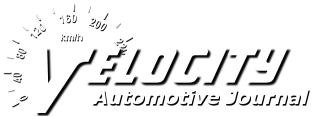PERFORMANCE-DRIVEN DESIGN SUPPORTS THE CAPABILITY OF THE CORVETTE ZR1 - AND
12/20/2007
Chevrolet
In 1990, the Corvette ZR-1 caused a stir with its wider quarter panels, convex rear fascia and squared taillamps. They were the visual clues that identified the special car, enhancing its status as an instant legend.
Spotting the '09 ZR1 at a glance is a snap, too, with its unique, carbon-fiber dual-port fenders, exposed carbon-fiber roof panel, rockers and front splitter, as well as a unique rear spoiler. Also exclusive to the ZR1 is a raised, carbon-fiber hood with a polycarbonate window that provides a view of the supercharged engine's intercooler that proclaims "LS9 SUPERCHARGED."
Enthusiasts may consider the ZR1's hood a crystal-clear glimpse at the soul of the ultimate Corvette.
"There is nothing subtle about the ZR1," said Kirk Bennion, exterior design manager. "It is a car that isn't shy about its capability."
While the exposed carbon-fiber elements and windowed hood symbolize the car's character, there are numerous other design details that are less obvious yet no less important to the ZR1's performance. They include:
Carbon-fiber front fenders widened to accommodate the ZR1's larger front wheels and tires
ZR1-specific twin vents in the front fenders
Full-width rear spoiler with raised outboard sections incorporates the center high-mounted stop lamp
ZR1-specific 20-spoke alloy wheels in Sterling Silver (chrome available)
Nineteen-inch front wheels and 20-inch rear wheels inspired by C6R racecars
Michelin Pilot Sport 2 tires; P285/30ZR19 in front and P335/25ZR20 in the rear
ZR1-specifc blue-painted brake rotors visible through the wheels
"The ZR1 has a performance-driven design," said Bennion. "There is an aesthetic element to all of the unique features, but they were developed first and foremost to support the car's performance capability."
Bennion cites the front splitter and rear spoiler as prime examples.
"Because of its top-speed and handling capabilities, the ZR1 requires more downforce than the Z06, and the splitter and rear spoiler were carefully shaped and wind-tunnel tested to meet that requirement," he said. "The front fenders were widened to cover the wider wheels and their new, twin-outlet vents provide a path for hot air to escape."
The ZR1 shares the front fascia with the Z06, but the brake-cooling ducts are revised to channel more air to the brakes. Even the front suspension's A-arms were aerodynamically optimized - they feature air deflectors that direct air to the carbon-ceramic brake rotors.
The ZR1 is available in seven exterior colors, including: Black, Velocity Yellow Tintcoat, Victory Red, Atomic Orange Metallic, Jetstream Blue Metallic Tintcoat and two new colors - Blade Silver Metallic and Cyber Gray Metallic.
Exposed carbon-fiber
A lightweight material pioneered in racing circles, carbon-fiber has an undeniable air of exoticness and only a few production cars have ever employed the relatively expensive composite in their exterior panels. The 2004 Corvette Z06 Commemorative Edition featured a carbon-fiber outer hood and the current Z06 has carbon-fiber fenders and floor panels.
On the ZR1, the roof panel, roof bow, lower rocker moldings, front splitter and the underside of the hood feature exposed-weave carbon-fiber. The other carbon-fiber parts of the ZR1 include the front fenders and hood. The front fascia, doors, rear fenders and rear fascia are made of various other composite materials and all are painted body-color.
The carbon-fiber panels contribute to the car's visual identity - particularly the exposed-weave panels - but they also serve an important purpose: They save weight. The carbon-fiber roof panel and roof bow, for example, weigh about 7.7 pounds (3.5 kg) less than the already lightweight composite panels on the Corvette Z06.
Ironically, the identifiable and intricate weave pattern of carbon-fiber on most production cars is hidden beneath a shell of paint, because the weave is very susceptible to ultra-violet (UV) light damage, which can cause yellowing or a generally dull appearance. But thanks to a specially developed material that ensures a deep, lustrous and long-lasting finish, the '09 ZR1's exposed-weave panels feature a clear coat that protects like paint.
"The clear coat is applied to the exposed carbon-fiber panels that are exposed to sunlight," said Mark Voss, designing engineer. "In addition to preventing damaging UV rays, the coating has the chip and scratch resistance of conventional paint."
The special clear coat, which is a proprietary product developed by a GM supplier for the ZR1 program, gives the carbon-fiber parts a shiny, almost wet finish that adds to the visual depth of the weave pattern.
Interior details
The ZR1's interior builds on the brand's dual-cockpit heritage, with high-quality materials, craftsmanship and functionality that support the premium-quality experience promised by the car's performance. The ZR1's cabin differs from the Corvette and Corvette Z06 with the following:
ZR1-logo sill plates
ZR1-logo headrest embroidery
Specific gauge cluster with "ZR1" logo on the tachometer and a 220-mph (370 km/h) readout on the speedometer
Boost gauge added to the instrument cluster and head-up display
The "base" ZR1 (RPO 1LZ) comes with accoutrements based on the Z06, including lightweight seats and lightweight content. The uplevel interior package includes unique, power-adjustable and leather-trimmed sport seats (embroidered with the ZR1 logo); custom, leather-wrapped interior available in four colors; navigation system, Bluetooth connectivity and more.
